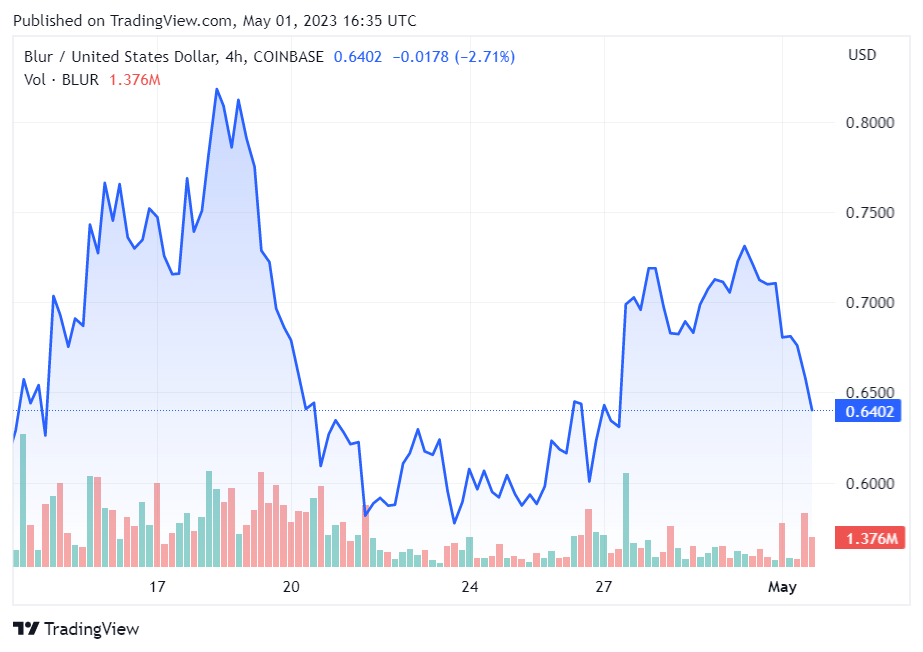Leading non-fungible token (NFT) marketplace Blur has built a peer-to-peer perpetual lending protocol Blend — Blur Lending — in collaboration with Paradigm’s Dan Robinson and Transmissions 11.
According to the NFT marketplace, transactions on the new protocol would be free within the first 180 days. However, the fees can be turned on after this period by BLUR token holders via the decentralized autonomous organization’s (DAO) governance.
Blend to unlock NFTs liquidity
According to its whitepaper, Blend would help unlock liquidity for NFTs by providing loans with fixed rates that never expire.
“Borrowers can repay at any time, while lenders can exit their positions by triggering a Dutch auction to find a new lender at a new rate.”
The whitepaper highlighted how the new protocol differs from competitors like BendDAO and NFTfi, with its peer-to-peer model providing access to liquidity by matching lenders with borrowers.
The protocol has other features like allowing lenders to liquidate their NFTs anytime, no expiration for borrows as long as the lender is willing to lend, avoiding any Oracle dependencies, etc.
Blur said these features would make NFT lending “intuitive for borrowers and safe and flexible for lenders.”
According to Dune analytics data, the cumulative volume for NFT lending exceeded $1 billion in April. The space is dominated by Paraspace, which controls about 48% of the weekly NFT Finance market share.
Blur token tanks 10%
Following the news, the NFT marketplace native token fell 5.47% on the 1-hour candle to trade at $0.64353 as of press time, according to CryptoSlate’s data. The asset is down 10.47% in the last 24 hours.

This is in stark contrast to its performance on the seven days metrics, where it is up by roughly 9%, while it has risen by 13% in the last 30 days.
Meanwhile, Blur has usurped OpenSea as the dominant NFT marketplace in the past few months. The marketplace accounts for over 50% of the trading volume in the industry, according to Dune analytics data.
The post Blur launches P2P NFT lending protocol appeared first on CryptoSlate.








